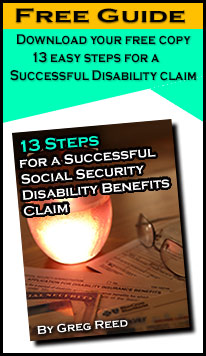In the News – For those with Disabilities
There’s so much going on every day in the world it’s hard to keep up with all the issues that affect the daily lives of people with disabilities. In an effort to keep you informed, we hope that you will find the following news items interesting and helpful.
Social Security Expands Compassionate Allowances Program
On August 16, the Acting Commissioner of the Social Security Administration announced that the agency has added 12 additional medical conditions to its list of disorders that are designated eligible for Compassionate Allowances (CAL).
The Compassionate Allowance program enables Social Security to quickly identify medical conditions that meet Social Security’s definition of disability and includes certain cancers, brain disorders and some rare disorders what affect children.
Through updated technology, Social Security is able to target those applicants with the most serious disorders and reduce the waiting time to reach a determination.
This process is accelerated by obtaining medical records electronically and some claims can be granted based on medical diagnosis alone.
Social Security decides which disorders are CAL based on comments it receives from the public, the Social Security Determination Services community, medical and scientific experts, and research provided by the National Institutes of Health.
The new conditions are:
- Refractory Hodgkin Lymphoma
- Choroid Plexus Carcinoma
- Desmoplastic Mesothelioma
- Charlevoix Saguenay Spastic Ataxia (ARSACS)
- CIC-rearranged Sarcoma
- Congenital Zika Syndrome
- Duchenne Muscular Dystrophy – Adult
- Pericardial Mesothelioma
- Renpenning Syndrome
- Taybi-Linder Syndrome
- SCN8A Related Epilepsy with Encephalopathy
- SYNGAP1-related NSID
SNAP Benefits to Increase in October 2021
The Supplemental Nutrition Assistance Program (SNAP), previously known as “food stamps,” provides help to more than 42 million people each year, most of them households with children and elderly and disabled members.
The Biden administration recently approved updates to SNAP, giving needy families the largest increase in benefits to date. This increase is separate from the Families First Coronavirus Response Act of March 2020 which addressed temporary food needs during the pandemic. Congress does not need to approve this increase and it will not expire.
Anti-hunger advocates, nutrition experts, and recipients of benefits have contended for many years that the current Thrifty Food Program (TFP) underestimates the cost of a healthy diet.
In 2018, Congress directed the U.S., Department of Agriculture to reevaluate the dietary guidelines of TFP and on August 16 the department released revised nutrition standards. Benefit amounts vary by state, but the average monthly benefit of $121 will increase by $36. All 42 million beneficiaries will receive additional aid beginning in October, helping to reduce hunger and poverty.
Loan Forgiveness for Disabled Students
In August the Biden administration announced it would erase student loans for 323,000 students who are “totally and permanently disabled” or TPD.
This loan discharge totals more than $5.8 billion in student loans and applies to borrowers who are identified through existing data by the Social Security Administration or the Veterans Administration as TPD. A student who receives a TPD discharge will no longer be required to repay federal student loans or complete a TEACH Grant service obligation.

The Veterans Administration will contact borrowers who are TPD and advise them they are eligible.
No action is required by the borrower; the Veterans Administration will inform the holders of federal student loans to discharge the loan or service obligation. The SSA will contact students and let them know they are eligible to apply. Students must then provide documentation of SSDI or SSI benefits when they apply. Students who think they may qualify for a loan discharge, but have not been notified that they are TPD by either the SSA or the Veterans Administration, can complete a TPD discharge application and submit it to the U.S. Department of Education with supporting documentation.
Additionally, the U.S. Department of Education is making changes to two other policies.
The department will stop sending requests to borrowers for earnings information indefinitely and propose to eliminate the 3-year monitoring period required under current regulations.
New Rules for Travelers with Service Animals
The Department of Transportation has authorized new regulations limiting air travel with service animals.
The new regulations are in response to health and safety issues faced by airlines due to an increased number of animals brought on board and replace somewhat vague guidelines forcing airlines to make up their own rules.
- The only animals allowed onboard will be dogs and only dogs that are considered service dogs, trained to perform tasks for a passenger with disabilities.
- Emotional support animals will no longer qualify as service animals.
- A Department of Transportation form must be completed certifying that the dog is trained, well-behaved, and in good health.
- The dog must be leashed, harnessed, or tethered and fit within the handler’s foot space.
- Carriers may limit a disabled passenger to two service animals.
- Other animals will be considered pets and may travel in a plane’s cargo hold; airlines may charge a fee for this service.
- Passengers traveling with a service dog must be allowed to check in online rather than physically at the airport.
Algorithms May Be Impacting the Hiring of People With Disabilities
An algorithm is a process or set of rules to be followed in calculations or other problem-solving operations, especially by a computer.
A recent report issued by the Center for Democracy and Technology has found that software algorithms used by companies in their hiring process are having a negative impact on people with disabilities who are looking for jobs. Titled “Algorithm Hiring Tools: Innovative Recruitment or Expedited Disability Discrimination,” the report discusses the different ways computer algorithms fail to capture the complex experiences of individuals living with a disability. This is particularly evident in employee recruitment and hiring processes.
One in four adults in the U.S. lives with a disability and the employment rate of people with disabilities in the United States is about 37% compared with 79% of the population that is not disabled.
There are many different forms of disability, making it difficult to detect bias in the employment process. For example, a hiring tool might analyze facial movements and tone of voice to evaluate a candidate’s job interview or the candidate’s performance in an online game. A blind person seeking employment will experience different barriers than a person with a mobility impairment or a cognitive disorder. One of the main problems seems to be platform accessibility. How would a vision impaired candidate access a test with graphics and images? How would a candidate with a motor disability move a mouse or answer multiple choice questions? How would a candidate on the autism spectrum react to an exercise in reading facial expressions? To further complicate the problem, many candidates are afraid to disclose their disability.
The Americans With Disabilities Act (ADA) prohibits discrimination of people with disabilities through inaccessible hiring processes or questions and exercises that do not measure skills and qualities directly related to the specific job they are applying for.
The algorithms most employers rely on in the hiring process have been modeled after positive traits of successful employees. By failing to consider the difficulties faced by candidates with disabilities, companies risk promoting discrimination in the workplace.
The Center for Democracy and Technology has some suggestions to improve the hiring process for people with disabilities and make it more equitable.
- The Equal Employment Opportunity Commission (EEOC) should update its guidelines on employee selection tools to respond to changes in technology.
- Organizations must realize the limitations of algorithmic tools when assessing individuals with disabilities.
- Organizations should consider whether the qualities they are measuring (for example, “optimism,”) are necessary in the position.
- Organizations should inform each prospective candidate about the details involved in tests they are taking.
- Alternative tests should be available to candidates who believe algorithmic testing may be unfair to them.
- Organizations should develop employment policies to offset these issues.
Perhaps the biggest responsibility in resolving these issues lies with the software vendors.
They should design their products with an emphasis on accessibility – with the help and feedback of people with disabilities.
Disability benefits are an important source of income for those who are unable to work. If you are not able to work due to accident or illness, you may be eligible for Social Security Disability or Long Term Disability benefits. If you have applied for benefits and been denied, contact the attorneys at Bemis, Roach and Reed for a free consultation. Call 512-454-4000 and get help NOW.
Additional Disability News links you may find Interesting
Current topics
Issues concerning the disabled and the COVID-19 Vaccine. ->
The Covid-19 pandemic and its effect on the Disabled ->
The Impact of the Nursing Shortage for those with Disabilities. ->
What is Social Security Privatization? ->
Myths and Facts about the Homeless population in Austin ->
Disability Fraud ->
Major Changes to Social Security’s Back Problem Impairment Listings ->
Help for the Disabled
President Obama’s Federal Student Loan Forgiveness Program ->
National Disability Employment Awareness Month ->
Advance Directives for Health Care and why you should have them. ->
New Communication Technologies to Assist the Disabled ->
Google Helps the Disabled ->
What is the HEADs UP Act of 2018? ->
What are some Helpful Smartphone Apps for People with Disabilities? ->
Politics / Government
Voting Issues Faced by People with Disabilities ->
What Does the 2018 Omnibus Spending Bill Mean for People with Disabilities? ->
The Biden Plan for People With Disabilities ->
How will the GOP Tax Plan Affect the Disabled? ->
Donald Trump and his plan for Medicaid ->
What are the Changes to Social Security this Year? ->
History of Disability in America ->
Author: Attorney Greg Reed has been practicing law for 29 years. He is Superlawyers rated by Thomson Reuters and is Top AV Preeminent® and Client Champion Gold rated by Martindale Hubbell. Through his extensive litigation Mr. Reed obtained board certification from the Texas Board of Legal Specialization. Greg is admitted to practice in the United States District Court - all Texas Districts and the United States Court of Appeals-Fifth Circuit. Mr. Reed is a member of the Travis County Bar Association, Texas Trial Lawyers Association, past Director of the Capital Area Trial Lawyers Association, and an Associate member of the American Board of Trial Advocates. Mr. Reed and all the members of Bemis, Roach & Reed have been active participants in the Travis County Lawyer referral service.
Your Free Initial Consultation
At Bemis, Roach and Reed, if we can't help you, we will try to find the right attorneys for you.
We offer each of our prospective clients a free no obligation one hour phone or office consultation to see if we can help you and if you are comfortable with us. We know how difficult a time like this can be and how hard the decisions are. If we can be of assistance to you and help you find a solution to your issue we will even if that means referring you to another attorney.
Or simply call
512-454-4000
to schedule your
Free Consultation
Let's get you Started:
If you could provide us with some basic information about your claim we will get right back with you with a free case evaluation and schedule your Free Consultation Today.













